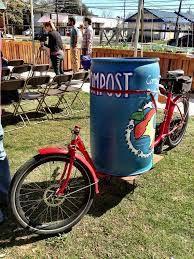If you’re tired of trudging to the dumpster while hauling trash bags over your shoulder, it’s time to make your way to Austin, Texas.
A 2013 Environmental Protection Agency study says the average American produces 4.38 pounds of trash per day, which is almost double the global average of 2.6 pounds per person per day. In 2013 alone, Americans generated 254 million tons of garbage. The amount of waste we produce could decrease dramatically if more businesses followed the practices of the first zero waste grocery store, in.gredients, in Austin.
In.gredients focuses on the reduction of waste, local producers and their customers. Austin has the goal to be a zero waste city by the year 2040, so the founders created the perfect place to open such a unique grocery store.
A zero waste policy works to eliminate as much waste as possible and reduce the remaining garbage. Customers are encouraged to bring their own containers and bags to fill up with ingredients and products such as flour, sugar, olive oil, salt, pepper or anything else you would find in a kitchen.
With the use of personal containers, customers have the freedom to buy however much they need without wasting leftover ingredients. This idea of deliberate shopping has the potential to better our future environment by eliminating the overuse of cardboard, plastic and other packages food comes in. It is extremely unnecessary to individually package food products in such large quantities when we could be using the zero waste policy.
As well as packaging waste, grocery shopping can be terribly expensive and frivolous. How many times have you bought a three pound bag of flour when all you needed was one cup? The zero waste policy is mutually beneficial to both the consumer and supplier because consumers pay less by buying only what they need and the supplier is not selling products that will go to waste.
Cities need to be more diligent about watching their garbage production and finding ways to cut back on massive waste output. Some people may say trash-free shopping could potentially be unsanitary, but it is actually very easy to keep grocery stores such as in.gredients clean and up to code. Barrels with spouts are used for liquids, so no customer has the ability to contaminate the products. Other foods are distributed from containers that require a turn of a wheel or a pull of a handle. These methods make it a clean, sterile local grocery store that the community can depend on to have the right amount of whatever they need.
Our trash production is an overlooked problem with many immediate and long term effects on not only the United States, but also globally. People need to pay attention to their waste production and strive to eliminate their carbon footprint. By being diligent, deliberate and smart, people can easily leave a positive impact on Earth.
Casey Pimentel is an 18-year-old mass communication sophomore from The Woodlands, Texas.
Opinion: Zero-waste policies benefit local community
August 24, 2017

A compost bin sits on a bicycle at the in.gedients store in Austin, Texas.




